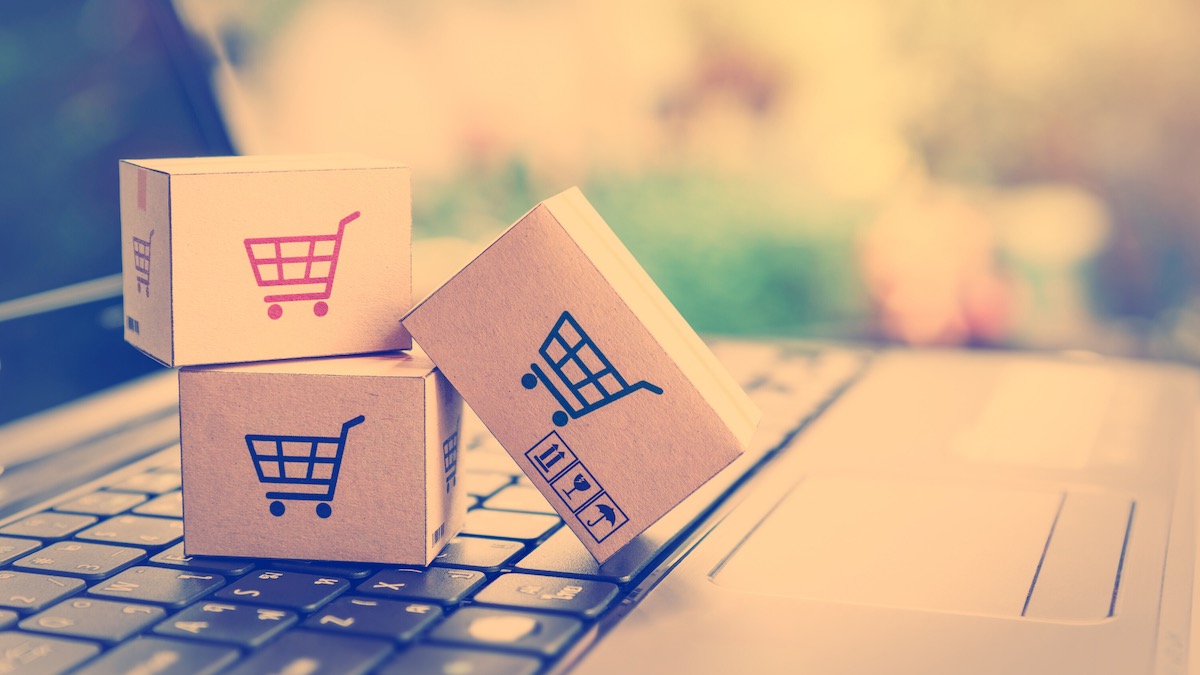User-friendly payment – what do I need to know?
Written by
Angelique SzameitatPublished on

Two-thirds of German Internet users shop online at least once a month. Their payment preferences have changed significantly over the years, as a recent study by Bundesbank shows. This is not the only thing e-commerce companies should take into account when looking for the right payment service provider or when they want to offer different payment methods on their own. Some exhibitors, partners, and speakers of the upcoming E-Commerce Berlin Expo (23 February 2023) reveal what else should also be considered. For example, the toy specialist MyToys, the demand management leader Lowell, the payment platform Stripe, the B2B payment provider Billie, TrustPay and other experts all give further tips worth mentioning in extra interviews.
Purchases on the Internet in 2021 were most likely to be settled via PayPal (45% named this as their favorite method), meaning that this payment variant once again gained slightly in importance. According to the Bundesbank study, despite rapidly declining in popularity, purchase on account continued to defend second place at 18% (compared to 23% in 2020). Women are primarily responsible for this, since they are twice as likely as men (24% vs. 12%) to pay by invoice. In addition, older people prefer this payment method (>65 years: 37%), while it is increasingly falling off the grid among younger people (<24 years: 6%), who are even more likely to use PayPal (62%).
Although credit cards are still not the Germans’ biggest favorites in e-commerce (11%), they are more popular than direct debit (8%). Klarna (previously Sofortüberweisung) is preferred by around 4% of people, compared to around 2% for Amazon Pay. In view of these and similar secure alternatives, prepayment has become much less attractive and is now the first choice of only a tiny minority of customers. Special Internet payment methods are generally more in demand the lower the amount to be paid. However, if the amount exceeds the €500 limit, direct debits or bank transfers are still the preferred option.

Payment options without excessive demands
Merchants should therefore have a wide variety of payment options available, regardless of the industry. Payment via PayPal, for example, must now be offered as a matter of principle in order not to alienate a large proportion of customers. However, by not offering Klarna or Amazon Pay, an average of one in 25 or one in 50 online shoppers, respectively, is already being denied the best shopping experience from their point of view. However, Michael A. Renz, Head of Sales DACH/KAM at receivables management specialist Lowell Financial Services GmbH, part of the Ecommerce Expo community, warns against overwhelming customers with a variety of additional digital payment methods. Instead, processes using data, such as from behavioral science, should decide which payment method is likely to be the most suitable for whom and at what time.
Pay attention to the industry
Likewise, industry-specific trends must be taken into account: E-commerce Berlin Expo advisor partner MyToys, for example, is celebrating the greatest successes with purchase on account, without losing sight of possible shifts in the market. “If future tests or surveys show that our customers are changing their habits, we will adapt accordingly,” says Thomas Ficht, Head of Payment at the MyToys Group.
Such changes in habits and how companies should respond to them are just one topic at the E-Commerce Berlin Expo, which opens its doors on February 23, 2023. Over 9,000 attendees will be able to visit around 250 exhibitors from all areas of e-commerce at STATION Berlin and listen to presentations by around 50 speakers to make valuable contacts, learn about new services, and deepen their own knowledge.
More spending control thanks to inflation
Here are also some helpful tips in order to master the influence of what will presumably then still be rampant inflation, which is rubbing off at present even on payment habits. For example, the price increases experienced in April alone prompted a third of Germans (according to a survey conducted by Sapio Research on behalf of Paysafe) to adapt to these new circumstances when paying online. Shoppers are now leaning more toward payment options that allow them to keep better track of their spending and are increasingly forgoing credit, which could also dampen enthusiasm for previously booming Buy Now Pay Later (BPNL) offerings.
Larger companies such as MyToys.de can afford to offer BPNL without intermediaries or service providers, and can thus direct their own customers in the best possible way. Smaller and medium-sized online retailers, however, are better off with payment service providers to handle such services and also other payment offers, from which they can choose between a wide range of options. In addition to the payment methods offered and the fees due, merchants should also make sure that the respective service works well with their store system. Frictional losses during check-out are a real sales killer, yet, according to a study by Stripe, checkout processes that take over three minutes (66%) and a lack of mobile optimization (due to the barely-existent support of Apple Pay & Google Pay, among other things) are more the rule than the exception. Here in particular, it is therefore still possible to stand out extremely positively from the competition.

Don’t miss out:
- Selected payment companies and exhibitors at the E-Commerce Berlin Expo.
- Extra interview “Tips & tricks for user-friendly payment” with Checkout.com: highly customizable payment platform (after one-time integration) that supports numerous international and local payment methods and provides detailed transaction-level insights.
- Extra interview “Online payments: Conversion killers identified” with Stripe: comprehensive payment platform with numerous APIs and tools for worldwide payments, integration of all relevant payment methods incl. credit cards, digital and mobile wallets, direct debits, and transfers.
- Extra interview “The 5 predictions on payment trends” with TrustPay: focuses on cross-border payment services in the CEE region in the e-commerce sector.
- Extra interview “How to Establish Buy Now, Pay Later payment methods for B2B companies” with Billie, providing solutions from liquidity to automation to digital payments for companies.
Good to know…
- TreviPay: specialist in B2B payments, providing support primarily in invoicing and granting credit lines.
- Computop Paygate: offers industry- and company-specific payment solutions for e-commerce and omnichannel.
- Paypal: Access to over 350 million customers worldwide, currently the most popular payment tool on the Internet, own installment payment options for private customers.
- Klarna: a Swedish payment service provider that enables e-commerce companies to offer their customers instant transfer, invoice, and installment purchases, among other things, without having to worry about payment defaulting.
- Adyen: this Dutch service provider is one of the pioneers of modern digital payment processing and, as an established industry player, offers a wide variety of payment methods for the entire retail sector.
- EVO Payments: offers cashless payment solutions for POS and e-commerce, as well as being one of the best providers for internationally operating retailers.
- Alma: this still fairly young, French fintech company wants to show an alternative to consumer credit with its BPNL offers, having already convinced more than 6,000 merchants and numerous investors about its services.
The material was written by Angelique Szameitat in collaboration between E-commerce Berlin Expo and GFM Nachrichten with the aim of providing readers with knowledge on how to stay competitive in the new era of digital commerce. Read the text in German here.
Want to learn more about where the payments market is headed and what to watch out for? Do you want to establish or deepen existing business relationships with some of the most popular payment providers worldwide? Then you should already make a note of February 23, 2023, when numerous exhibitors and speakers await visitors to the E-commerce Berlin Expo (EBE) in Berlin.


